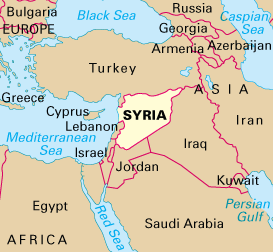

By Karin Leukefeld
This article was published in the German daily Junge Welt on Jan. 30. Translation by Workers World managing editor John Catalinotto.
Turkey has failed to achieve its mission in Idlib. An agreement reached in September with Russia and Iran to follow the “Astana format” had provided for the establishment of a demilitarized buffer zone with 12 checkpoints around the province of Idlib. [However], Haiat Tahrir Al-Sham (HTS), an internationally listed terrorist organization, will now control this zone.
[“Astana format” refers to the results of discussions among Russia, Turkey and Iran for resolving the war in Syria, starting in 2016 and meeting in Astana, Kazakhstan’s capital. — WW]
HTS, the Alliance for the Conquest of Syria, the former Fatah Al Sham Front (formerly the Al Nusra Front), prevailed in a bloody power struggle against the “National Liberation Front,” the group that emerged from the “Free Syrian Army” and that cooperates with Turkey. The defeated forces retreated via the Afrin area to northern Syria and Turkey. HTS, which already controlled the border crossing Bab Al-Hawa, the provincial capital Idlib and strategically important connecting roads, now dominates the whole province.
Recent reports indicate that the Syrian army and its allies are preparing to advance into Idlib province. Russian Foreign Minister Sergei Lavrov said on Jan. 28 that Moscow was prepared to implement the Idlib agreement, but that HTS was not abiding by it. According to Lavrov, the province is a hotbed of terrorism and the area would have to be put back under the control of the Syrian army.
Russian President Vladimir Putin had already expressed criticism at a meeting with his Turkish counterpart Recep Tayyip Erdogan in Moscow on Jan. 23. Russia and Turkey must work more closely together to fight HTS in Idlib, Putin said. Erdogan showed himself open to the suggestion and declared that “more bilateral action is necessary to end the actions of terrorist groups.” At the next Astana meeting between Russia, Turkey and Iran — presumably in February — the action should be jointly agreed upon.
Meanwhile, Erdogan seemed more interested in the planned advance into the areas east of the Euphrates River after the planned withdrawal of U.S. troops. However, he sought Russia’s support in vain. Putin stressed that Turkey’s security concerns were well understood. These are best guaranteed by Syrian troops in the area.
Putin referred to the Adana Agreement signed by Turkey and Syria in October 1998. At that time the Turkish government had threatened to invade Syria if Damascus did not end its support for the Kurdistan Workers Party (PKK). After PKK chairman Abdullah Öcalan was forced to leave Syria and go on an odyssey through various countries, he was captured in Kenya and brought from Kenya to Turkey by a Turkish-Israeli secret service command.
The Adana Agreement was directed against the PKK on all five points and provided for close cooperation between Ankara and Damascus. Syria pledged itself at the time to protect the common border and to take on preventing “PKK arms deliveries, logistics, money support and propaganda in Syria.”
In order to revive cooperation between Ankara and Damascus, Moscow had already brought up the agreement in 2016 and again thereafter. In order to include the interests of Turkey, Syria and the Kurds, Moscow apparently strives for two parallel reconciliation processes. Maxim A. Sukhkov analyzes them in the Internet portal Al-Monitor: “A political agreement between Damascus and the Kurds and security coordination between Ankara and Damascus.”
During a press conference at the meeting with Erdogan, Putin read from a letter that had been leaked to Russia. In the letter, the co-signers Germany, France and Britain had asked United Nations Secretary General António Guterres at the end of 2018 to instruct the outgoing U.N. special envoy for Syria, Staffan De Mistura, to reject a proposal put forward by Russia, Iran and Turkey for the composition of the Constitutional Committee (for Syria). “To be honest, we were shocked,” Putin said, that the work of the Astana Group for Peace in Syria should be so openly undermined.
Philadelphia On March 26, the Pennsylvania Supreme Court denied political prisoner Mumia Abu-Jamal permission to…
There are two important and overlapping holidays on April 22: Earth Day and Vladimir Lenin’s…
Twelve people were arrested April 9 for blocking traffic to Travis Air Force Base, a…
Secretary-General of Hezbollah Sheikh Naim Qassem delivered a speech on April 18, 2025. Resistance News…
Anakbayan Philadelphia held a rally on April 19 to demand the U.S. end its military…
Boston, April 20, 2025 The leadership of the Democratic Party nationally and especially in Massachusetts…